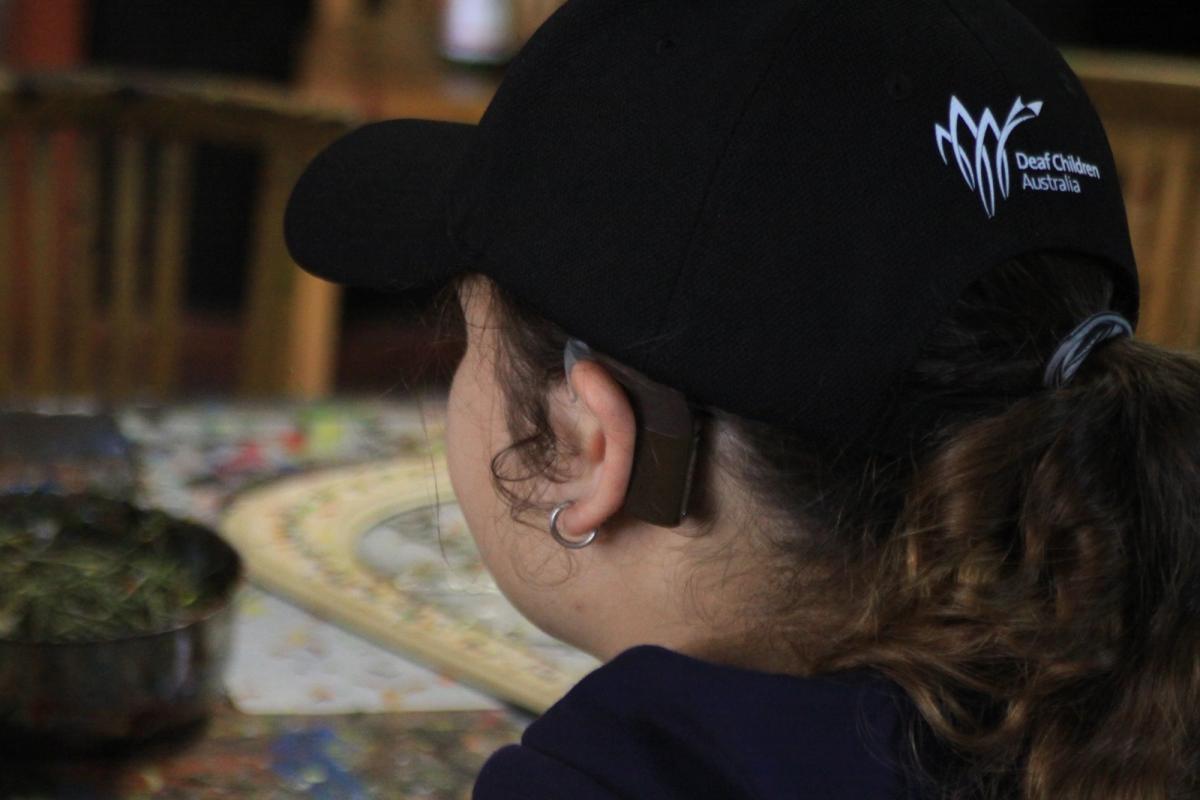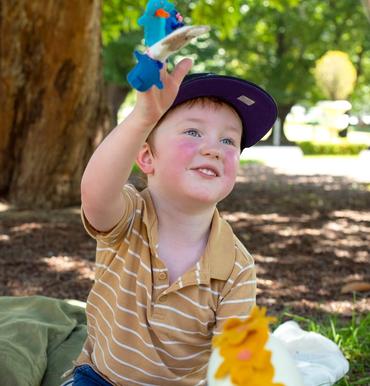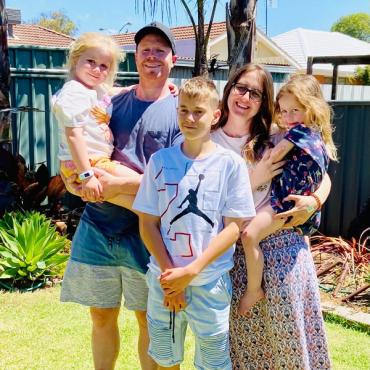My child is deaf and has additional needs.
It’s estimated up to 40% of children who are deaf or hard of hearing have additional needs. These can be related to health, social and/or educational development. The accepted term when referring to deaf and hard of hearing children with additional needs is 'deaf plus'.

Having a deaf plus child impacts your entire family and can understandably raise some concerns. Knowing more about your child’s additional needs can give you a greater sense of control and help you find the right support for your child and family.
How are additional needs diagnosed?
When seeking a diagnosis for your child, it can help to focus on the big picture. Seeing different professionals and having different tests all help to put the pieces of that picture together. The clearer the picture, the easier it is to get a diagnosis.
When children are deaf plus, it can be more difficult for health professionals to tease out what’s going on. For example, it could be difficult to tell whether a delay in speech or signing is related to the hearing loss, a developmental delay, or an intellectual disability. Some test results are also less reliable for children with disability.
Try to hang in there. You are a vital member of your child’s support team, so don’t be afraid to offer your input and ask questions of health professionals. Working together gives you the best chance of finding answers and getting your child the support that will most benefit them.
Your permission should always be sought before your child is assessed. Whenever possible, try to be there for your child’s assessments, because your input can be extremely helpful.
Your child won’t necessarily receive an exact diagnosis. Sometimes, their needs might be given a label such as ‘developmental delay’.
Knowing more about your child’s additional needs can give you a greater sense of control and help you find the right support for your child and family
What happens next?
It’s important to know that the diagnosis doesn’t matter so much as getting your child the support they need to be healthy and meet their potential. Once your child’s additional needs have a label, you should be given advice and information to help you understand more about them. You should also get access to a range of services, such as medical and allied health services, respite care, and early intervention. These services are aimed at meeting your child’s needs and goals identified during the assessment process.
You are a vital member of your child’s support team, so don’t be afraid to offer your input and ask questions of health professionals
What support is available?
A range of health and support professionals may be involved in assisting your child to achieve their potential. Examples include early intervention service providers, occupational therapists, psychologists and NDIS support coordinators.
The services you can access might depend on where you live or whether you meet eligibility criteria. Services providers make decisions based on the information you provide, so be sure to describe your situation clearly and don’t underestimate your needs. You might also find it helpful to develop a relationship with a GP and a paediatrician. They can help to monitor your child and refer you to appropriate services as needed.
You audiologist will also play an important role in helping you find the best way to manage your child’s hearing.
Learn more about different types of specialist supports here.
How do I communicate with my child?
Finding the best way to communicate with a deaf child who has additional needs can be more challenging, but it is possible
Finding the best way to communicate with a child who is deaf plus can be more challenging, but it is possible.
It can be helpful to discover how your child is trying to communicate by making a list of what they can do and what they like and dislike. Then think about how you know this. For example, does your child point to what they want, such as food or a toy? Or do they make sounds, facial expressions, or use eye contact? These are all signals your child is communicating.
These signals can be used to build a communication system that works for your child and family. Examples include speech, signing, and object systems (using objects to indicate meaning, such as a fork to signal lunchtime). Using this system consistently will help your child have more control over what is happening and start to understand daily routines.
Your system should be used by everyone who has contact with your child. Many parents find a combination of communication forms is most effective, such as speech combined with signing.
Your child's speech pathologist, Teacher of the Deaf, and/or special education teacher will probably have plenty of advice and ideas you can try.
It’s important to know that the diagnosis doesn’t matter so much as getting your child the support they need to be healthy and meet their potential
Learning as much as possible about your child's condition and the treatment/support options available helps you make informed choices and gives you greater confidence in managing things that involve your child and family.
Don’t be afraid to seek a second opinion if you’re not happy with your child’s diagnosis.
Parenting tips for children who are deaf plus
Helping your child to express their needs. It’s vital your child develops a sense of control over getting their needs met. You could support this by:
- taking photos of everyday items, such as toys, food, and people, and sticking them onto a card or into a plastic pocket so your child can use it to indicate what they want
- having objects your child frequently uses readily available around the house
- labelling things around your house and in your car.
Helping your child to express emotions
It’s important your child learns to recognise and communicate their emotions. Some ways you could support this include:
- reading stories and books that describe emotions
- ensuring you include words to describe emotions in your communication system
- using gestures and facial expressions to express your feelings
- using objects such as toys or puppets to talk about emotions
- discussing and validating your child’s emotions – for example, say “I understand why this makes you sad/angry/frustrated/happy”.
Supporting your child’s independence
Independence will look a bit different for every child who is deaf plus. Some examples of encouraging your child to become more independent include:
- allowing them to take small risks to build skills and confidence – for example, using a new piece of playground equipment by themselves
- encouraging them to practice what they’re good at and pursue their interests
- allowing them to attend events and activities, such as clubs and holiday camps.
Looking after yourself
As the parent of a child who is deaf plus, it’s vital you also take care of yourself. After all, you can’t give your child the support they need if your own tank is empty!
Prioritise time out to do things you enjoy, such as reading, going for a walk, or taking a bubble bath. It’s also important to look after yourself physically, so do your best to eat a nourishing diet and get adequate sleep and physical activity. You might want to assemble your own team of support professionals, such as a good GP, counsellor and physiotherapist.
Your own family might also be a good source of support, as can other families who have a deaf child with additional needs. Nobody will understand what you’re going through quite as well as someone in a similar situation.



